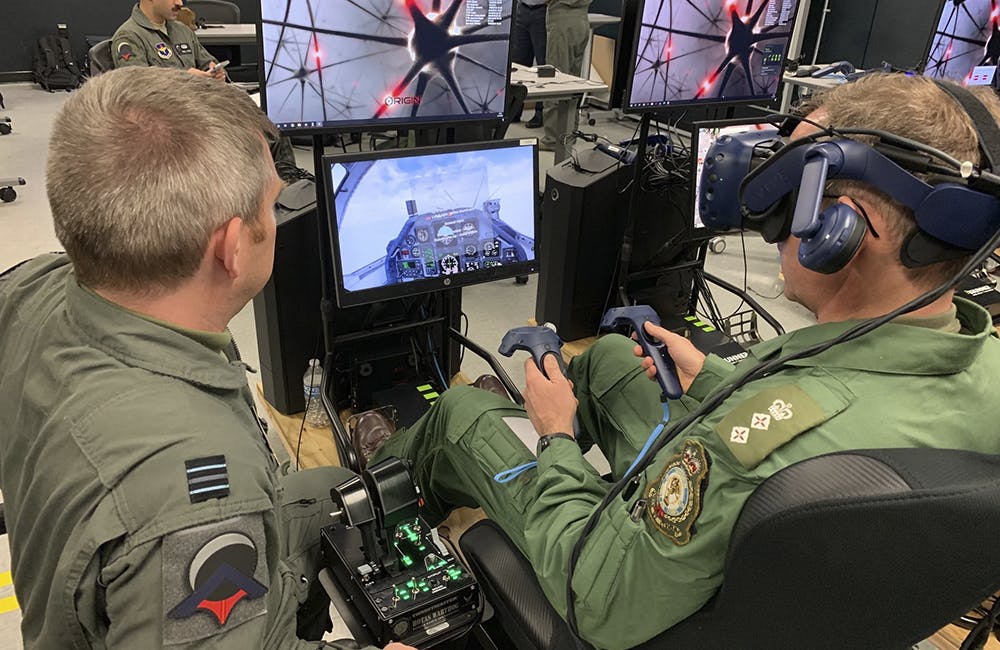Army Focusing AI Deployment Around Leadership, Culture of Trust
The Army is focusing on leadership and building a culture of trust with soldiers while upscaling its workforce and AI capabilities.

The U.S. Army has recognized the criticality of strategizing artificial intelligence deployment vertically as it looks to scale it across the organization.
While the technical capability to scale AI across the Army is a key goal for AI leadership across the agency, Army AI Integration Center Director Dr. Douglas Matty said that his team is also focused on ensuring leadership understands AI and data.
“We think about data-driven leadership as core and essential to the Army’s ability because it’s the leaders who come up with the doctrine and drive the requirements,” Matty said during FedInsider’s Solving Military Logistics with AI event. “How the Army runs or how DOD works — it starts with a requirement, and that requirement then drives not only the capability or material development, but also the resourcing.”
Matty added how AI technicians are becoming the Army’s center of gravity because they understand both the technical and tactical aspects of AI deployment.
“The Army has master gunners who are AI technicians that advise commanders and train soldiers on how to effectively deploy these AI capabilities and how to recognize when the pipelines are operating and functioning well,” Matty said. “They are the experts who can really operationalize the capabilities that we’re developing.”
The Army is building on this training, committing to implement equipment training to every soldier and civilian who operates pieces of equipment.
“We’ve developed an AI users’ course that allows us to pre-train people in expectation of deployment of these AI capabilities so that they understand data is not just data — there needs to be a notion of curated and quality data,” Matty said.
Beyond the technical training and leadership, the Army also recognizes that a culture that builds trust with AI is also critical for the technology’s implementation.
“What we want to do now is start to develop that trust in our soldiers so that they’re comfortable and can understand how does this AI capability work, and why is this an enabling technology that I can leverage and employ effectively,” Matty said.
Defense Logistics Agency CIO Dr. George Duchak noted that soldiers were hesitant previously around the idea of AI integration — especially around the idea that the workforce would be replaced by automated processes.
Working with personnel to show them that AI could streamline work, however, has opened the workforce to the technology’s adoption.
“The dull, unexciting jobs that they were doing were replaced to free them up to do something more exciting, something much more insightful, so I think the workforce is embracing it, and they’re finding ways of employing RPA that we hadn’t even thought of,” Duchak said.
Meanwhile, DLA has also created a couple of new positions that will help build its future of AI. The agency appointed Dr. Lindsey Saul as its new chief data and analytics officer, and in the past few months it has also added an AI strategic officer.
“The AI strategic officer is Jesse Rowlands, and his job is to be the single point of all things AI at DLA,” Duchak said. “He’s in the process of rolling out our AI strategy and trying to develop some training courses for our leadership and also for the analysts in the CDAO to become better data scientists.”
This is a carousel with manually rotating slides. Use Next and Previous buttons to navigate or jump to a slide with the slide dots
-

Federal Agencies Make the Case for Quantum
Amid development of emerging technologies like AI and machine learning, leaders see promise in quantum computing.
6m read -

Cyber Incident Reporting Regulation Takes Shape
An upcoming CISA rule aims to harmonize cyber incident reporting requirements for critical infrastructure entities.
5m read -

Connectivity Drives Future of Defense
The Defense Department is strategizing new operating concepts ahead of future joint force operations.
8m read -

5 Predictions for AI in Government Technology
Agencies are setting plans in motion not only to integrate AI into their enterprises, but also ensuring the data that power these systems are fair.
41m watch








